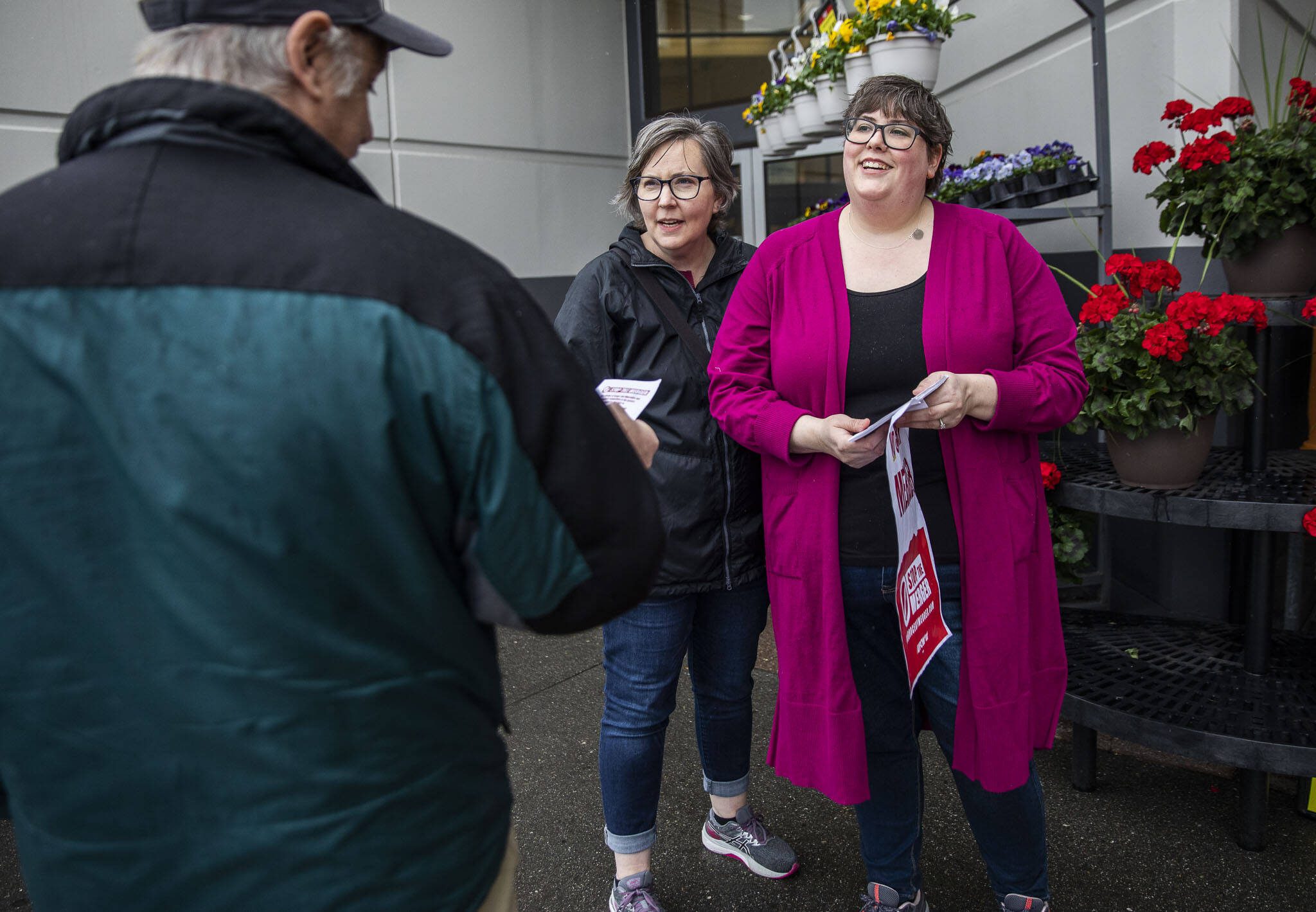By The Herald Editorial Board
An effort to block the proposed merger of two of the nation’s largest grocery store chains was joined last week by the state treasurer’s office.
It’s a needed boost to the issue’s visibility and adds more voices against further consolidation of scores of supermarkets, affecting millions of shoppers in Washington state and the larger Northwest.
Washington state Treasurer Mike Pellicciotti and six fellow state treasurers last week sent a letter to the Federal Trade Commission, which is reviewing the sale under antitrust laws, opposing the proposed sale of the Albertsons chain to the Kroger chain for $24.6 billion, seeking the federal agency’s careful consideration of the potential negative consequences, the Washington State Standard reported this week.
Seeking to compete nationally with Wal-Mart, Costco and Amazon, which operates Whole Foods stores, the two companies in total control about 13 percent of the U.S. market with about 5,000 stores in 48 states. In Washington state, Kroger owns and operates 114 Fred Meyer and QFC stores, while Albertsons operates 216 Safeway, Albertsons and Haggen stores.
Pellicciotti and the state treasurers from Colorado, Nevada, New Mexico, Delaware, Maine and Massachusetts cited concerns for the reduction in grocery store workers’ wages that would result from the merger. The treasurers cited an analysis by the Economic Policy Institute that showed the merger could result in an annual loss of $334 million in wages among 746,000 grocery store workers — and not just those working for Albertsons and Kroger — in more than 50 U.S. metropolitan areas, amounting to an average $450 reduction in annual wages for each worker.
The letter also cited concerns for the potential impact for grocery workers in possible layoffs and loss of hours; impacts on stores’ suppliers; the ability for workers to negotiate for better wages and working conditions; less accessibility for shoppers to goods, services and prescription medications and increased costs for shoppers.
“The consolidation of Kroger and Albertsons may lead to the creation of food deserts, which disproportionately affect vulnerable populations and can have severe health implications,” the letter states.
It’s the second attempt by a Washington state agency to block the merger. Last November, state Attorney General Bob Ferguson sued to stop a preliminary step in the sale, a $4 billion payout to shareholders by Albertsons and the private equity firm that owns 75 percent of the chain. Ferguson objected that the payout could undercut the grocery chain’s ability to compete — and to even keep stores open — even before the FTC could complete its antitrust review. Despite a preliminary injunction, the state Supreme Court rejected the lawsuit, allowing the payout to proceed.
The potential loss of grocery stores for some neighborhoods isn’t theoretical. It’s common as part of antitrust approval for federal regulators to require the sale of stores where once-competing stores are more closely situated. And if sales aren’t required, the closure of overlapping supermarkets is a possibility as a larger merged company seeks to trim costs and pay dividends to shareholders.
Consider that in Snohomish County, Albertsons operates about 15 Safeway stores within or near county borders as well as three Haggen locations in Lake Stevens, Snohomish and Marysville, while Kroger operates eight Fred Meyer stores and seven QFCs. In Everett alone, two Safeway locations — at 41st and Rucker, and 17th Street and Broadway — are within blocks of two QFCs, at 50th St. SE and Evergreen Way, and Broadway and Everett Avenue.
Closure of one or more of those stores could mean lost jobs for employees and longer trips and less competitive pricing for shoppers. And sales of stores to third parties offer no guarantee that the new owner has the capital necessary to allow a store to offer competitive prices, pay fair wages to employees or even remain in business.
Kroger and Albertsons, in their merger agreement have said they plan to divest up to 650 stores nationwide, and its CEO told The Oregonian earlier this month that it has identified and talked with potential buyers but did not name those companies.
The FTC reviews potential buyers of stores that merger participants are ordered to sell, but that hasn’t always gone well.
Albertsons, the Attorney General’s November lawsuit noted, has been here before, in 2014, when it purchased the Safeway chain and was ordered by the Federal Trade Commission to part with 26 stores in the state and another 120 elsewhere in the Western U.S., selling them to Haggen, which at the time was a small Bellingham-based chain with 18 stores. Haggen, overwhelmed, filed for bankruptcy and sued Albertsons over the sale. In the end Albertsons bought back 14 of the stores in this state, only three of which continue to operate as supermarkets. Albertsons then reacquired Haggen’s remaining 15 stores, which it is now seeking to include in the sale to Kroger.
The purpose of state and federal antitrust law is to foster healthy competition among companies while protecting the interests of consumers from monopolies that can unfairly control prices and supply.
After more than two years of high inflation, much of it landing on consumers at the grocery store, protection from reduced competition — and its higher prices and reduced accessibility to daily goods and services — must be assured.
Correction: An earlier version of this editorial provided an incorrect amount for the proposed sale price of Albertsons stores to Kroger. It is $24.6 billion. As well, an incorrect amount was given for the payout to Albertsons to shareholders. It was $4 billion.
Talk to us
> Give us your news tips.
> Send us a letter to the editor.
> More Herald contact information.

























